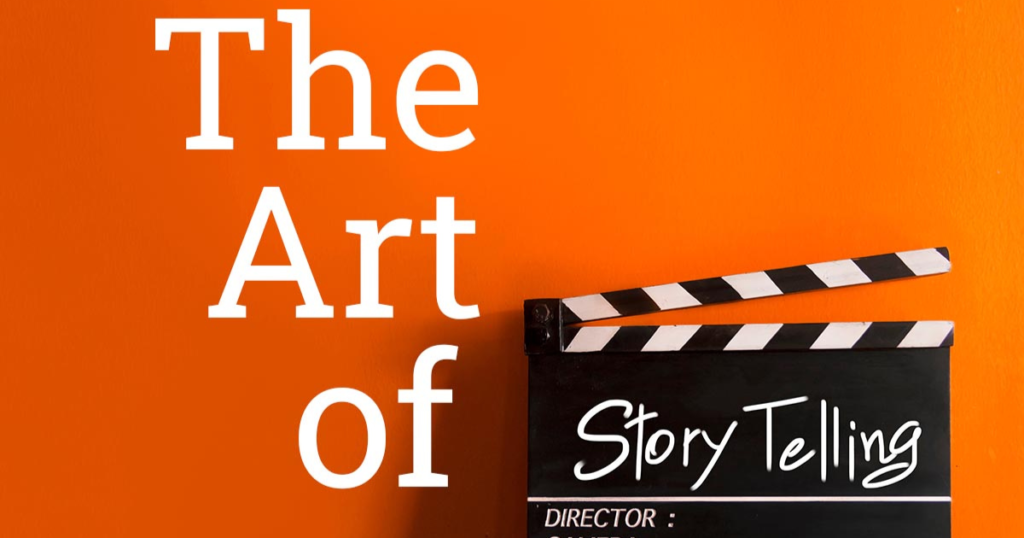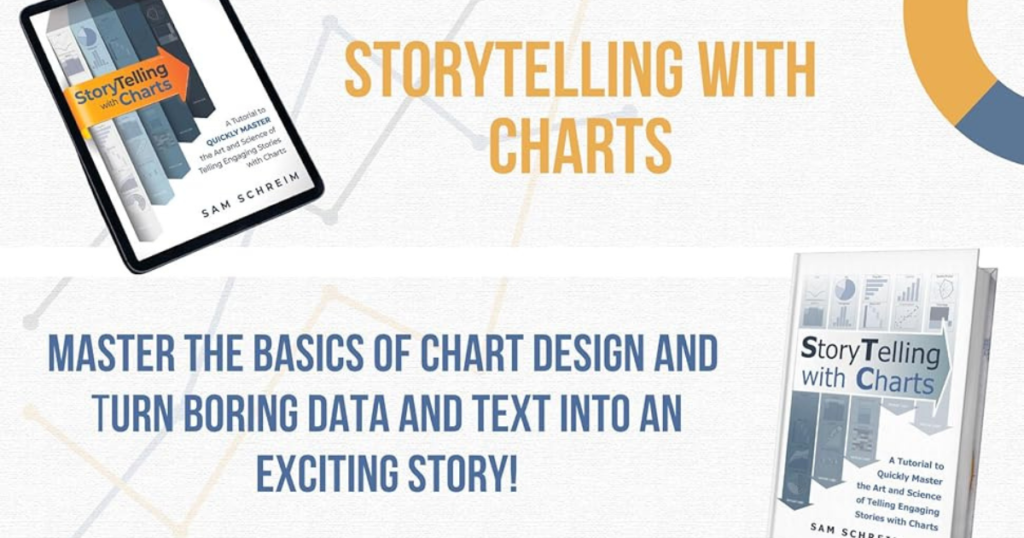Storytelling is an age-old art that has maintained its relevancy as it has adapted through time with successive generations, to become a fundamental means of communicating with each other. As we now face an overabundance of information and reality remains complicated in ways that are difficult to imagine, learning the craft of storytelling becomes an even greater task, and critical for authors who want to be impactful. The following article reviews the best techniques available on Amazon.com for storytellers trying to engage their readers while simultaneously improving their skills as a storyteller.
Why is the Art of Storytelling Important for Authors?
How does storytelling impact reader engagement?
Storytelling is important for writers, as storytelling is directly connected to reader engagement. An excellent story has the ability to draw in readers and help them escape into varied worlds and points of view. When writers tell a story well, they’ve created a bond with the reader and emotional engagement is vital in a marketplace full of options. Engaged storytelling encourages reader engagement in the story, and readers are invested and want to turn the page. This bond also develops a strong sense of support for the author, which influences engagement with future work. The connections readers make with a writer’s story can impact the success of the writer.
What are the benefits of mastering the art of storytelling?
Understanding how to tell a story can greatly benefit authors in a few ways. First, it encourages them to develop storytelling skills that allow them to create not just interesting stories but memorable ones. When authors tell a good story, they receive more customer reviews to begin with. When people find a book has provided a memorable experience, they are more likely to recommend it to their friends. Second, authors who tell stories can present more opportunities for public speaking and collaboration, which can help an author reach more readers in the community.
How can storytelling enhance customer reviews?
Customer reviews are an important aspect of any authors journey, and stories help them a lot. When readers are taken with a great story, they are more likely to write a review about how they felt and will often describe parts of the story that stuck out to them. “I loved the book” or “We ordered another” are phrases that can come from well told stories that have an emotional resonance in the reader. Stories told in an effective way will help the author get good reviews that serve as social proof for potential readers, resulting in possible sales and increased visibility on sites like Amazon.com.

What Storytelling Techniques Can Authors Use to Engage Their Audience?
What are the key elements to create a story?
Creating an engaging story involves several important components. These include, but are not limited to, a solid plot, relatable characters, an engaging setting, and a clear theme. A plot should provide interesting conflict to engage the reader, while characters should be fleshed out so readers can take the journey with the characters. One can establish a setting whereby readers can suspend disbelief and feel the pull of an imaginative world. Last but not least is a clear theme that gives the story depth and meaning which can resonate after finishing a story.
How do different storytelling techniques appeal to various audiences?
Various kinds of readers will respond to different telling behaviors, and knowing these nuances is important as a writer. For example, younger readers might prefer faster-paced stories that are action- & humor-filled, whereas adult readers may prefer complex characters and storylines. Authors who are looking to support their storytelling will want to try different techniques, such as adding humor, suspense, or emotional weight to their stories based on their potential audience. Being mindful of your target audience can help authors engage their particular audience, ensuring that they keep turning the page.
What role does character development play in storytelling?
Character growth is essential to strong storytelling. We learn to relate to and engage in the text when we are able to see ourselves in our characters, which helps us to build writerly empathy. Authors need to think deeply about their characters’ backstories, their motivations, and arcs so that their characters experience some sort of growth. Character growth creates relatability, which is an important component of narrative depth. When readers care about a character, they are more likely to engage with the story overall, because they have a vested interested in how that character’s story unfolds and what the character experiences along the way.
How Can Authors Know Their Audience to Tell a Story Effectively?
Why is it crucial to understand your audience?
Writers of fiction should know their audience in order to tell a story effectively. Understanding the stories readers like, what they like to read, and how they tend to read all help writers align their story. This goes not only for choice in the themes and style of writing but it helps with marketability of the book. When writers tell stories that resonate with their chosen audience, it will lead to reader loyalty and reader followership, and overall lead to greater levels of success for the writer.
What methods can authors use to research their audience?
Writers can use a variety of approaches to more accurately gauge their audience. One way to gather information is to read customer reviews on sites like Amazon.com, where readers express their views on or relate to aspects of specific genres, characters, and themes. Writers can also gain insights into audience preferences by engaging with writing communities and attending literary events. In addition, writers can connect in real time with readers directly via social media to receive feedback and observations about what readers like or dislike. Any or all of these approaches will help writers become much better storytellers for their audience.
How can audience feedback shape storytelling?
The feedback from the audience is essential in shaping any story. When a reader expresses their thoughts and their reactions to a story, the author can better understand what aspects worked and what didn’t. The constructive criticism allows the author to craft their storytelling techniques, which allows the author to shuffle through the work while producing more engaging works the next time around. By the author being a good listener of viewer feedback, the author can curate their storytelling to develop their skills or to alter their style based on what the reader expects.

What Strategies Can Authors Use to Follow Their Own Storytelling Style?
How can authors develop a unique storytelling voice?
It is critical for every writer to establish a distinct narrative voice. The narrative voice expresses the author’s personality, point of view, and style, and is a distinctive feature in an overwhelming literary field. Authors will develop their narrative voice by writing regularly, and exploring multiple styles of writing and genres. Additionally, authors can read a variety of literature to ignite their inspiration with distinctive and diverse narrative voices. Ultimately, by developing and refining their writing while remaining a creator, the author will produce a distinctive narrative voice that resonates with readers.
What are some common pitfalls in storytelling to avoid?
When perfecting the craft of storytelling, authors must be careful of certain pitfalls that can inhibit their story, such as too many details in the story, neglecting character development, and a lack of conflict. Authors should also avoid clichés, as clichés can create a story that feels stale and unoriginal. Developing an awareness of these drawbacks will help authors remain focused on drafting a provoking narrative, ultimately promoting greater storytelling ability and a more engaging experience for the audience.
How can personal experiences enhance storytelling?
Stories can be very rich sources of inspiration based on personal experiences. When writers use their lives as a source, it adds authenticity and emotional depth to a story. Positive and negative experiences shape characters, themes, and plots while making it more relatable for the reader. By putting elements of their own experiences into their stories, it allows readers to connect on a deeper level and enhances the narrative in total.
Where Can Authors Find Inspiration for Mastering the Art of Storytelling?
What resources are available on Amazon.com for storytellers?
A wealth of resources is on Amazon.com for anyone wanting to improve their storytelling ability. There are how-to’s on writing methods, as well as writing books from famous storytellers. They offer an abundance of materials that will delight and inspire an author. On top of that, there are additional resources in online courses and webinars focused on storytelling. Once you take a look at these resources, you will, no doubt, recognize the value of content they provide for you to master your storytelling skills.
How do customer reviews provide insights into effective storytelling?
Amazon.com customer reviews provide authors with excellent insight into what aspects of a story will gain favorable reactions. The content of the reviews will often highlight the elements readers enjoyed, such as characters, plot twists, or emotional weight. Once an author begins to categorize the feedback received within reviews, they will begin to spot patterns and preferences that exist within their audience and will subsequently use that info to purposefully change their storytelling craft. It is clear that customer reviews can be a rich inclusion into an author’s overall process because it can provide significant insight into how to create an engaging tale for the reader.

What role do writing communities play in inspiring authors?
Writing communities offer authors a supportive space, encouraging creativity and development. They can exist in-person or online and create space for networking, feedback, and collaboration. These connections with fellow storytellers give authors the opportunity to share experiences, ideas, and lessons. Additionally, writing groups often facilitate workshops and challenges that serve as a source of creativity and skill development. With connections to writing communities, authors can develop motivation and direction in their journey to becoming better storytellers.
FAQs
Q: How can I know my audience when practicing storytelling?
A: To know your audience, consider their interests, demographics, and preferences. Tailoring your story to resonate with them will enhance engagement and help you become a better storyteller.
Q: What techniques can help engage your audience during storytelling?
A: Engaging your audience can involve using vivid imagery, relatable characters, and a captivating plot. Incorporating elements that invoke emotions can also make your storytelling more effective.
Q: What is the importance of storytelling in today’s digital age?
A: Storytelling remains crucial as it helps to connect with audiences on a personal level. It can transform marketing messages into memorable narratives, making your content stand out amidst the noise.
Q: Can you recommend a great book teaching storytelling techniques?
A: “The Story Factor” by Annette Simmons is a great book teaching storytelling techniques. It offers insightful and practical resources for anyone looking to improve their storytelling skills.
Q: How can stories of the Bible be used in modern storytelling?
A: Stories of the Bible can be used as timeless examples to convey moral lessons and universal truths. They can serve as great but very humble stories that resonate with audiences today.
Q: What are some common tips mentioned by Dale Carnegie for effective storytelling?
A: Tips mentioned by Dale Carnegie include being genuine, using personal anecdotes, and focusing on the audience’s needs to make your storytelling more relatable and impactful.
Q: How can I make my storytelling more impactful without wasting more money?
A: To make your storytelling impactful, invest time in practice instead of money. Utilize free resources online, like workshops or articles, and apply the techniques you learn to refine your skills.
Q: What should I do if I’m already seeing similar storytelling techniques in other sources?
A: If you’re already seeing the same tips mentioned elsewhere, consider how you can put your unique spin on those techniques. Personalizing your stories will differentiate you from other storytellers.
Q: How do I select a delivery location to enhance my storytelling?
A: Selecting a delivery location that complements your story is essential. A setting that aligns with the theme can enhance the narrative and create a more immersive experience for your audience.